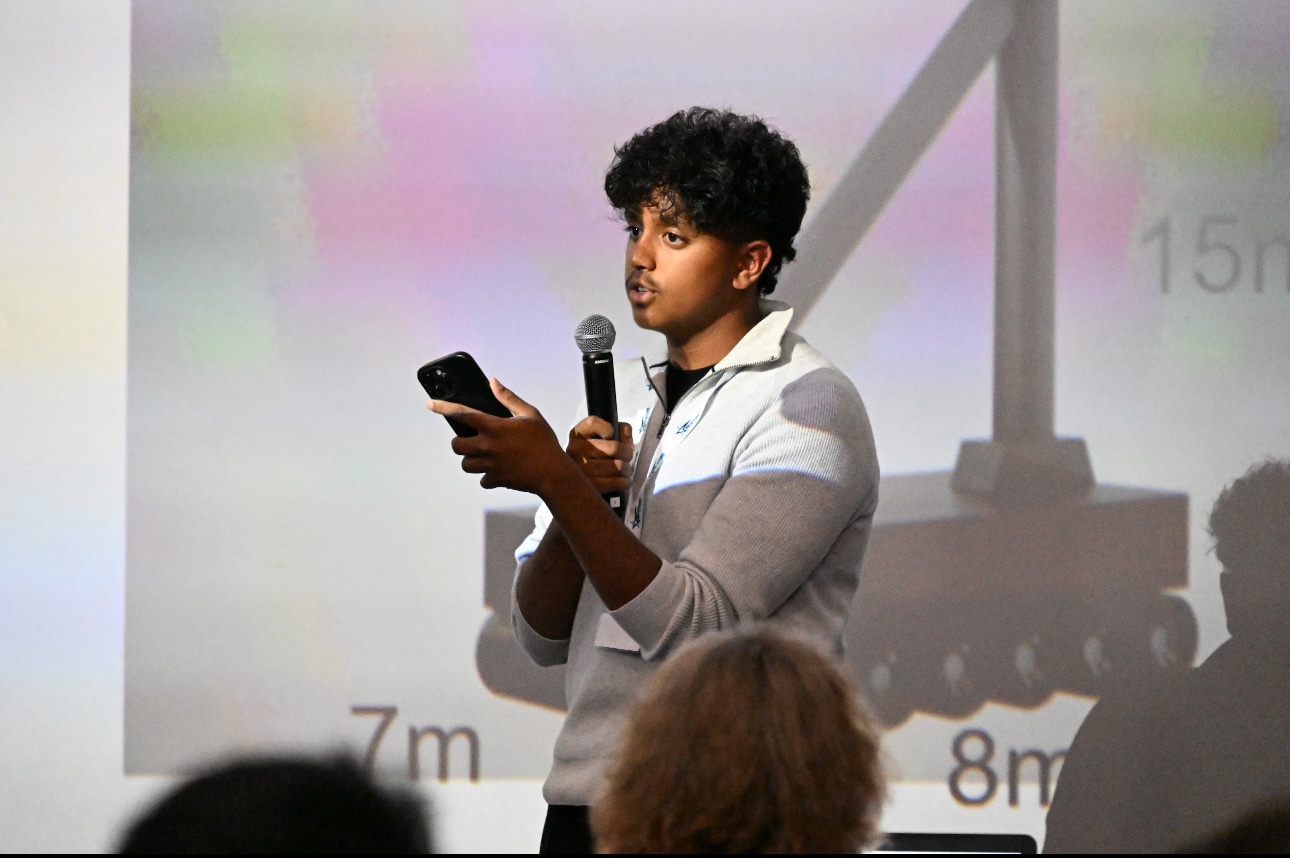
Year 9 pupil Ibrohim Saidahror won a silver medal after reaching the final in his category at the British Taekwondo National Kyorugi Championships.
Ibrohim competed in two bouts to secure his silver in Sheffield, winning his semi-final 2-0, before losing by the same margin in the gold medal match against opponent Finley Lamour.
QE’s Director of Sport, Jonathan Hart, said: “Our congratulations go to Ibrohim on this achievement: behind it lies a great deal of dedication and hard work to develop his skills and strength.”
Ibrohim sparred in the –37kg category novice cadet category with competitors aged 12–15 (he is 13).
Each fight comprised up to three 90-second rounds, with the winner being the first to win two of the rounds. Points could be scored to the body or the head, with ‘knock-out’ also a possible outcome.
Jubilant on his return from the championships, held at the English Institute of Sport (EIS) in Sheffield, he said: “”I started taekwondo to learn self-defence, but I really enjoy it. It is great for my flexibility and core strength.”
Ibrohim trains in West London at the Superior Taekwondo Academy and competes regularly at regional and national competitions. He plans to keep up with the sport.
Last term’s Sports Bulletin reported on him winning a gold medal in a sparring competition at the Sport Wales National Centre in Cardiff. “I am very proud of this achievement as it shows my determination and discipline in training,” he said at the time.




 Hardik’s essay was one of only five entries to reach the final in the Discover Economics contest, which was backed by the Royal Economic Society.
Hardik’s essay was one of only five entries to reach the final in the Discover Economics contest, which was backed by the Royal Economic Society. The final of the competition was held at accountants’ KPMG’s offices. Hardik, who is in Year 12, gave a ten-minute presentation, which was followed by a five-minute question-and-answer session with the judges, who were drawn from Government policy bodies as well as the Financial Times, who sponsored the competition, together with KPMG UK.
The final of the competition was held at accountants’ KPMG’s offices. Hardik, who is in Year 12, gave a ten-minute presentation, which was followed by a five-minute question-and-answer session with the judges, who were drawn from Government policy bodies as well as the Financial Times, who sponsored the competition, together with KPMG UK.
 QE’s entrants in the UK Space Development Competition were part of the mock ‘company’ crowned as national champions in the UK finals held at Imperial College in March.
QE’s entrants in the UK Space Development Competition were part of the mock ‘company’ crowned as national champions in the UK finals held at Imperial College in March. Four international companies, each comprising 60 competitors, were given 48 hours to produce a 50-page proposal for a space settlement that met strict technical criteria set by industry experts.
Four international companies, each comprising 60 competitors, were given 48 hours to produce a 50-page proposal for a space settlement that met strict technical criteria set by industry experts.